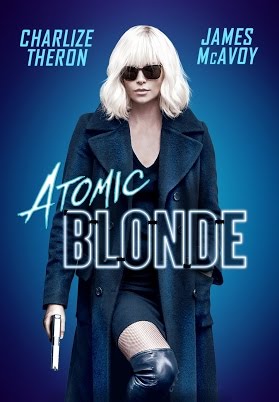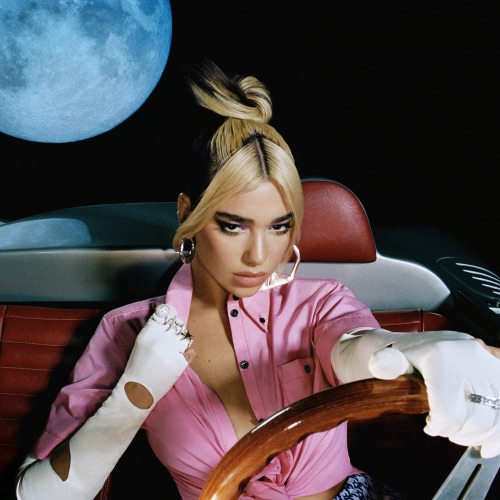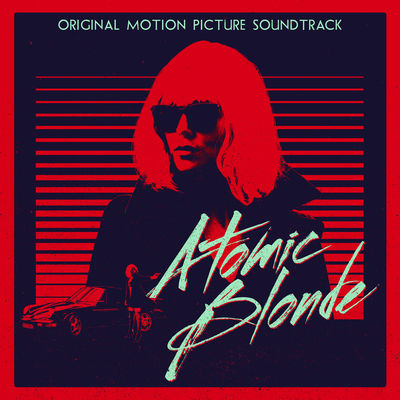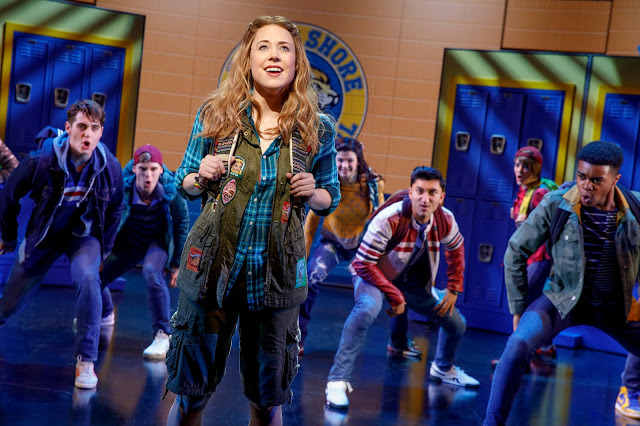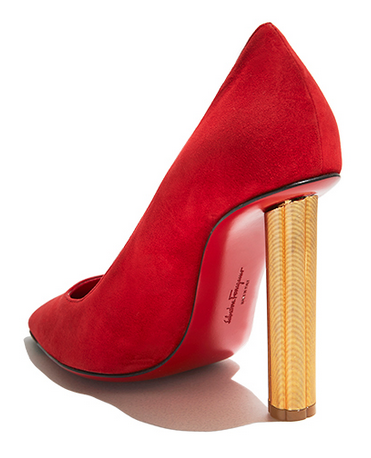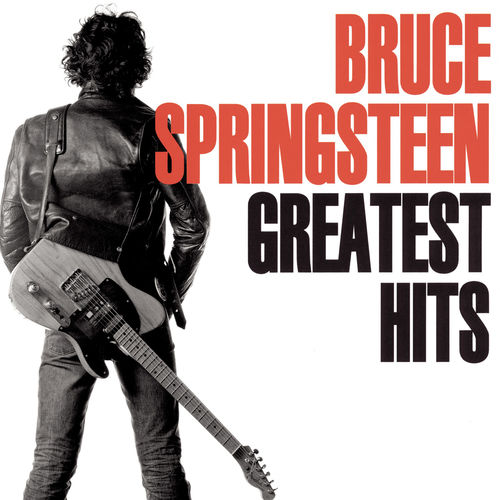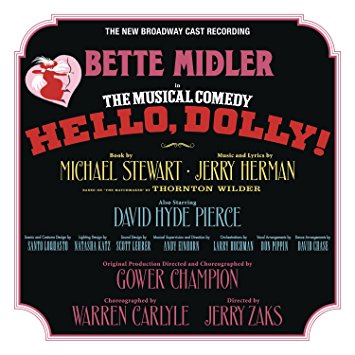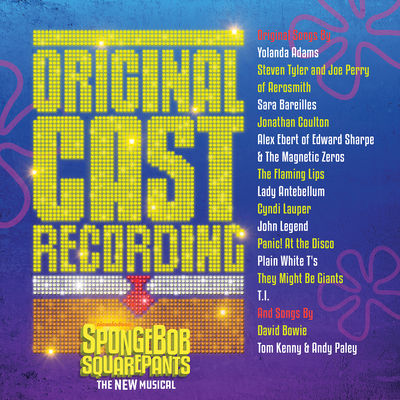ETHAN HAWKE AND PAUL DANO AS SAM SHEPARD'S ETERNALLY WARRING BROTHERS
 Monday, February 4, 2019 at 5:44PM
Monday, February 4, 2019 at 5:44PM  Ethan Hawke and Paul Dano
Ethan Hawke and Paul Dano
HENRY EDWARDS - New York - February 5, 2019
Check out the Book of Genesis for the first story of sibling rivalry, Cain’s murder of his brother Abel.
The Biblical narrative dates to 1450 BC-1400 BC. Needless to say, since then, there have innumerable depictions of siblings and their rivalry, including Sam Shepard’s seething 1980 play, “True West,” an ongoing favorite of college theatres and small theater companies.
Shepard’s older sibling rival, Lee (Ethan Hawke), is an impulsive, wild-eyed drifter and small-time thief. Lee takes after the brothers’ alcoholic, perpetually broke desert-rat father, claiming that he, too, lives on the Mohave where he makes dubious ends meet; his younger brother Austin is the polar opposite, a responsible and accommodating Ivy League-educated screenwriter with a wife and children and a devotion to his craft.
The bros have been at each other's throats since childhood. “True West” dramatizes their tumultuous encounter, after not having seen each other in five years.
They compete and collaborate, love and hate, drink and work, reminisce and prevaricate, argue ceaselessly over their incompatible present, past, and future lives, ending up in figurative and literal chaos punctuated by a beer-drenched Cain and Abel re-enactment.
The roles call for actors who enjoy placing their (often toxic) masculinity on devastating display, cutting loose with absolutely no inhibitions, and giving audiences a relentless pounding.
The 1982 pairing of Gary Sinise and John Malkovich has deservedly achieved legendary status. Philip Seymour Hoffman, John C. Reilly, Randy and Dennis Quaid, Tommy Lee Jones, Peter Boyle, and Bruce Willis have also assumed the challenge.
“It's the kind of play actors love to handle,'' Shepard once told an interviewer. “At its heart is this conflict between the intellect and the emotions, the physical wild man part and the reasonable intellectual side. You know, what it really means to be a man . . . there's not a whole lot of men who know what a man is, and I always thought it was weird that American men haven't resolved this; the American male is in conflict . . . and I think they're getting farther and farther apart; there's a bigger gap between the macho man and the other one.''
Ethan Hawke and Paul Dano portray the warring duo on a Broadway stage for the first time in 19 years in Roundabout Theatre Company’s deeply committed but flawed revival at American Airlines Theatre, directed by Britain’s James MacDonald.
Hawke, an old Shepard hand, appeared in a 1995 Steppenwolf production of the writer-actor’s Pulitzer Prize-winning “Buried Child” and directed a 2010 Off-Broadway revival of Shepard’s “A Lie of the Mind”; MacDonald directed Shepard (in a return to the stage after a 30-year absence) in Caryl Churchill’s “A Number” at New York Theatre Workshop in 2005.
Shepard died on July 27, 2017 at the age of 73, leaving a legacy of 44 discomforting but often darkly humorous plays, including his greatest achievement, the so-called family (nightmare) trilogy, “Curse of the Starving Class,” “Buried Child” and “True West.”
Each play in its individual stylistic way pulverizes the American Dream and its vision of the ideal American family and ideal American existence.
With reference to “True West,” Shepard once commented the play provides a taste of “double nature. I think we’re split in a much more devastating way than psychology can reveal.”
The split takes the form of a deep, contradictory craving in the American character for both freedom and the security of roots. There also exists a gnawing fissure between one's nostalgic memories of the past and the bleakness of a garish and desolate suburban present and pockmarked by cookie cutter lookalike homes, freeways, smog, and Safeway supermarkets.
“True West” takes place in just such a present, a linoleum and wood-paneled Carter-administration kitchen and adjacent dining room in the brothers’ childhood tract home about 40 miles east of Los Angeles on the periphery of the L.A. suburban sprawl.
Set designer Mimi Lien and lighting designer Jane Cox install their design inside a frame lined by bright fluorescent light strips. "True West" is written in nine scenes spread over two acts. Between each scene, the frame delivers a blinding blast of harsh white light.
And what a mistake that is!
By nature, a Broadway theatre is too big to wrap itself around a cramped and claustrophobic play that is meant to spill menacingly into the laps of audience; thus encasing it in a frame – artsy though it may be - does it the signifant disservice of creating a significant additional dose of unwanted distance between actors and audience, rendering it impossible to experience Shepard's desire to give theatergoers a kick in the guts.
Casting is another problem. While the first half belongs to Lee and the second half to Austin, Leo, by far, is clearly the showier part and Austin’s the harder one, making it a real challenge to create combatants of equal stature.
Hawke thrills as dangerous, combustible Lee. One look at him is all it takes to know he is major trouble, and that he lacks the slightest bit of concern for civilization’s legal or moral constraints.
The actor also subtly reveals the “Austin” part of his nature that dwells inside him. Lee may be untutored, damaged, and dangerous, but it turns out he's also a genuine romantic.
Paul Dano returns to theatre after an eight-year absence during which he delivered compelling, individualistic screen performances in “There Will Be Blood,” “12 Years a Slave” and “Love & Mercy,” among others. He’s a wonderful actor. But his passive characterization of Austin in the first half deflates the play.
Not that there’s an easy way to balance Hawke’s monumental aggressiveness, especially when portraying a character who has been overly civilized.
In the second half, Dano comes into his own as he sheds his good-boy behavior and lets it rip.
We first encounter the brothers in their mother’s home. Austin is housesitting while his mother is on vacation in Alaska and is hard at work attempting to finish the first draft of a script for Hollywood producer Saul Klimmer (Gary Wilmes). Klimmer is scheduled to visit the following day so that Austin and he can finalize the deal and sign contracts.
But Lee has turned up unexpectedly, and dripping with sarcasm, he starts plying Austin with nonsense questions.
Lee’s reference to the “forefathers” reveals his connection with the myth of the frontier American West.
Remembered mainly from the movies, if remembered at all, Lee’s old-fashioned romantic notion of a “true west” is characterized by unbound individualism and disdain for regulation. It's a male scenario existing in Lee's imagination and nowhere else.
Austin does not initially know what his brother is talking about. His “true west” is the “new” west of twentieth-century Southern California, replete with family ties, sophistication, comfort, suburban bungalows and freeways. Austin has absolutely idea that such a life can be empty and sterile.
Does either vision represent what it means to be a “real man”? Or does it take the consolidation of both points of view to produce a real “real man?"
The questions hang in the air.
The next day, while Austin meets Klimmer, Lee returns with the day’s haul, a stolen television set. Saul and Lee discuss golf and make plans to play the next day, excluding Austin because he doesn't play.
Lee also proposes a script idea for a "true-to-life" western and Saul reacts positively – if Austin writes an outline.
That night Austin grudgingly takes dictation from his illiterate brother.
Lee’s bizarre “true” western envisions two men who “take off after each other straight into an endless black prairie.” Since they don’t know where they are going, their improbable chase through the Texas Panhandle’s "Tornado Country" never ends.
While they work, the brothers admit harboring a deep-seated jealousy for the other’s life: Lee yearns for Austin’s status, education and familial stability; Austin pines for Lee’s outlaw life.
 Hawke and Dano
Hawke and Dano
Saul likes the outline because it has a mythical quality to it and suggests a primal experience. The producer offers to let Austin write both he and his brother's scripts, but Austin insists on doing his own work and loathes the inauthenticity of his brother's concept. This causes Saul to drop Austin's script and find another writer for Lee's story.
After Austin refuses to help Lee transform the outline into a screenplay, Lee takes on Austin’s identity, sitting at his brother’s typewriter, hunched and anxious, poking angrily at the keys and shouting at his despondent brother who is taking on the role of a semi-drunk Austin, to keep it down so he can concentrate.
Screenwriting can't be that hard, Lee tells Austin, adding that his own life of petty crime is much more difficult to navigate. He bets Austin that he couldn't even steal a toaster.
The next morning finds Austin polishing more than 30 toasters he has stolen from neighborhood houses.
Lee’s frustration grows as he recognizes that he cannot re-create his vision of the mythic American West or achieve his goal of successful screenwriter without the help of his brother. Finally, his violent disposition, heightened and accelerated with his growing awareness of the futility of his position, Lee explodes, smashes the typewriter with one of Saul’s golf clubs and burns pages of his script.
Likewise, Austin has descended into a drunken, unrestrained, aggressive state.
The resulting switch in roles has led them to conclude nothing is authentic and they have nothing to believe in.
Reduced to the untamed status of two wild animals in the mythologized West, they smash, spill, throw and pulverized everything they can get their hands on: demolishing a dozen cans of beer; at least two bottles of liquor; a full bag of golf clubs; the typewriter; a strung-out typewriter ribbon; an entire loaf of toasted white bread, which Dano stacks into a tower on a plate only to have Hawke knock it out of his hands and send the toast flying across the stage; the contents of almost every kitchen drawer and the drawers themselves; candy and knitting tins, yellow legal pads and assorted wadded-up sheets of yellow legal paper; ashtrays and cigarettes; a rotary phone which has been yanked off the wall; and a set of curtains, all also yanked off the wall.
Slumped against the kitchen cabinet, Austin, a mix of exhaustion, rage, and grim sadness, slugs down whiskey and crokes out the pathetic story of the last time he visited their old, drunken and near-destitute father in Juarez. They went on a bender, and the father ended up leaving his brand-new false teeth and some leftover chop suey in a brown paper bag in some dive bar and was too drunk to remember which one it was.
Looking at his mother’s destroyed kitchen, Austin has an epiphany about his unsatisfactory life. Making up his mind to drop out of society and give up his family (whom he has so far ignored, he begs Lee to take him to the desert. Lee agrees on the condition that Austin finishes the screenplay for him.
 Dano, Hawke and Marylouise Burke
Dano, Hawke and Marylouise Burke
The next day, their mother (a benumbed Marylouise Burke) returns from her vacation to discover her sons have demolished her home. To which Austin tells her that they are going to the desert. But the brothers have reverted to their previously held identities, and Lee declares that Austin is not cut out for desert life.
He starts to leave on his own, but Austin erupts in rage, grabs the phone from the floor, lunges at him and quite literally, he is at his brother’s throat, wrapping the cord around Lee’s neck. They stumble about the kitchen as Austin strangles Lee. When Lee, seemingly unconscious, falls to the ground, Austin releases him and starts moving towards the door, but Lee jumps to his feet and stops Austin from escaping.
After a very long and unnecessary shift, the scene shifts to the desert and we catch a glimpse of the brothers crouching and watchful for each other’s next step. There is no resolution. Their conflict is not resolved and, like others like it, can never be resolved.
Shepard’s antic and potentially tragic mix swings wildly between physical comedy and explosive violence. The surprising transformations of its two main characters and the conflicts that live within each of them -- intellect versus machismo, dream versus actual experience, obedience to the code of civilization versus impulse to rebel -- live within the culture as well as in the individual.
Even though the characters are written as equals, I could not help wondering if a cultured, literate Austin type stands a chance in a MAGA world where Lee and his regressive cohorts have seized control.
If he does not, although it’s emphatically sad to say, “True West” is a dated play.

 Henry Edwards | Comments Off |
Henry Edwards | Comments Off | 




